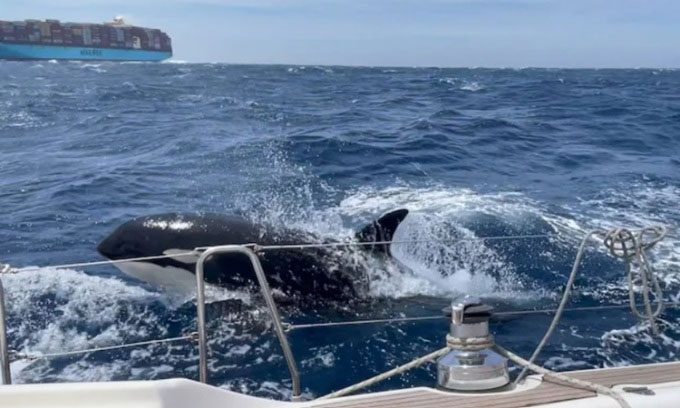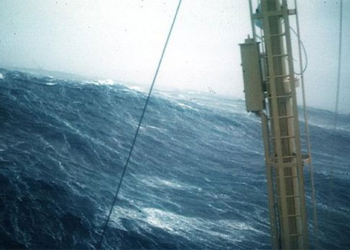The orcas ramming and sinking boats in the Strait of Gibraltar may just be immature individuals playing around and following a behavioral trend.
Since May 2020, researchers have recorded nearly 700 incidents of orcas colliding with boats near the Iberian Peninsula. This behavior has left sailors and scientists puzzled, with many speculating that the orcas are teaching one another to attack vessels traveling through the area. The hypotheses aimed at explaining this strange behavior include food scarcity (with orcas seeing boats as rivals for their preferred prey) and a sudden resurgence of marine activity following the pandemic.

Orca approaching a yacht in the Strait of Gibraltar. (Photo: Telegraph).
However, leading marine biologist Alex Zerbini, chair of the scientific committee at the International Whaling Commission (IWC) and a member of a research team appointed by the governments of Spain and Portugal, stated that it is likely that the orcas’ behavior represents a “new cultural tradition” without a clear purpose. In other words, the orcas may simply be following a momentary interest.
According to the research team, some populations develop unusual temporary behavioral trends that do not seem to serve any clear adaptive purpose. Researchers have also listed several strange behaviors observed in orcas over different periods throughout the years. For example, orcas in the South Pacific developed a habit of balancing salmon carcasses on their heads in 1987, starting with young individuals and spreading throughout the population. This behavior quickly disappeared but re-emerged in the summer of 2008 before vanishing again. Another example of unusual behavior that appeared and disappeared over a span of 20 years involved pairs of young and mature male orcas head-butting each other.
In recent incidents, most orcas approaching damaged or sunk vessels are immature individuals. They typically swim slowly towards boats as if attempting to lightly nudge the rudder. The behavior of these animals is not aggressive, and not every interaction ends with the destruction of the vessel, according to Zerbini.
The research team suspects that this new behavior may eventually fade away and re-emerge later. “When playing with the rudder, they do not understand that they could damage that part, affecting humans. It is playful behavior rather than intentional destruction,” Zerbini emphasized.





















































